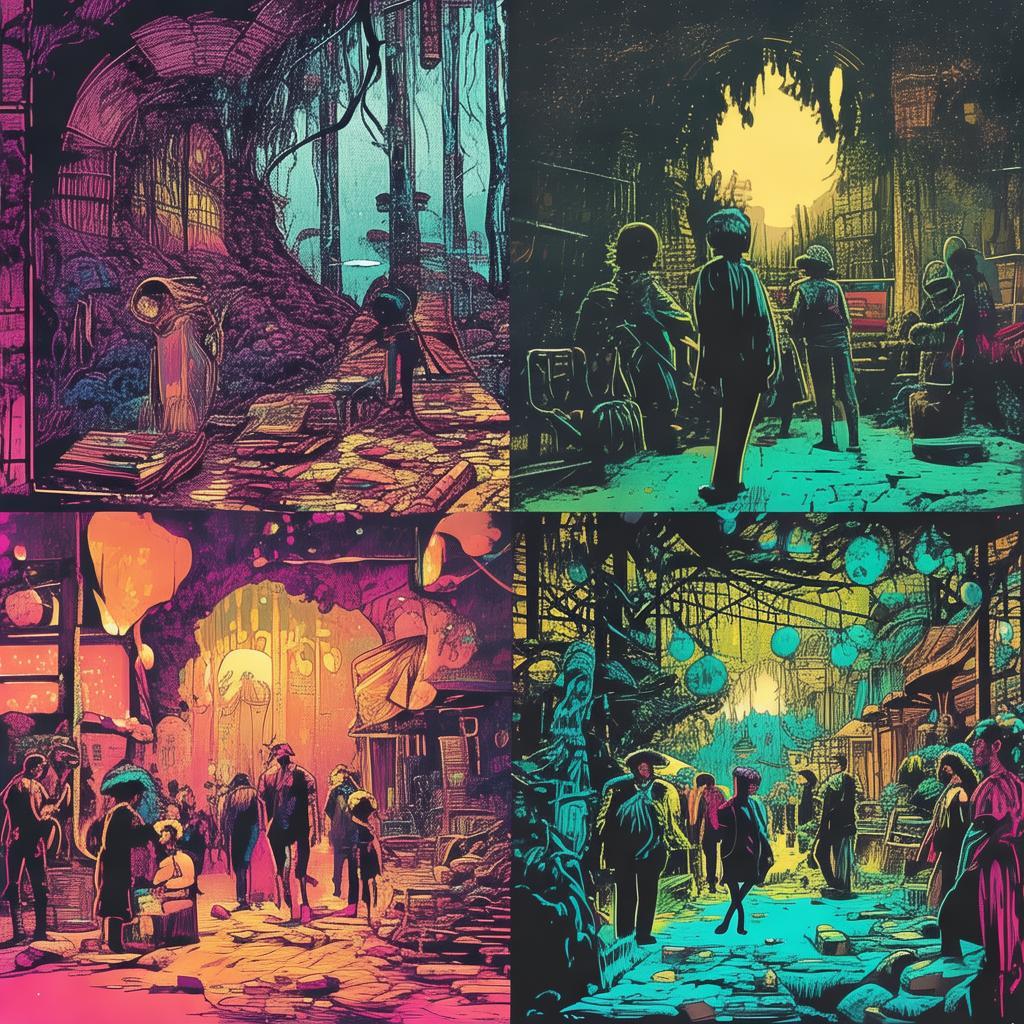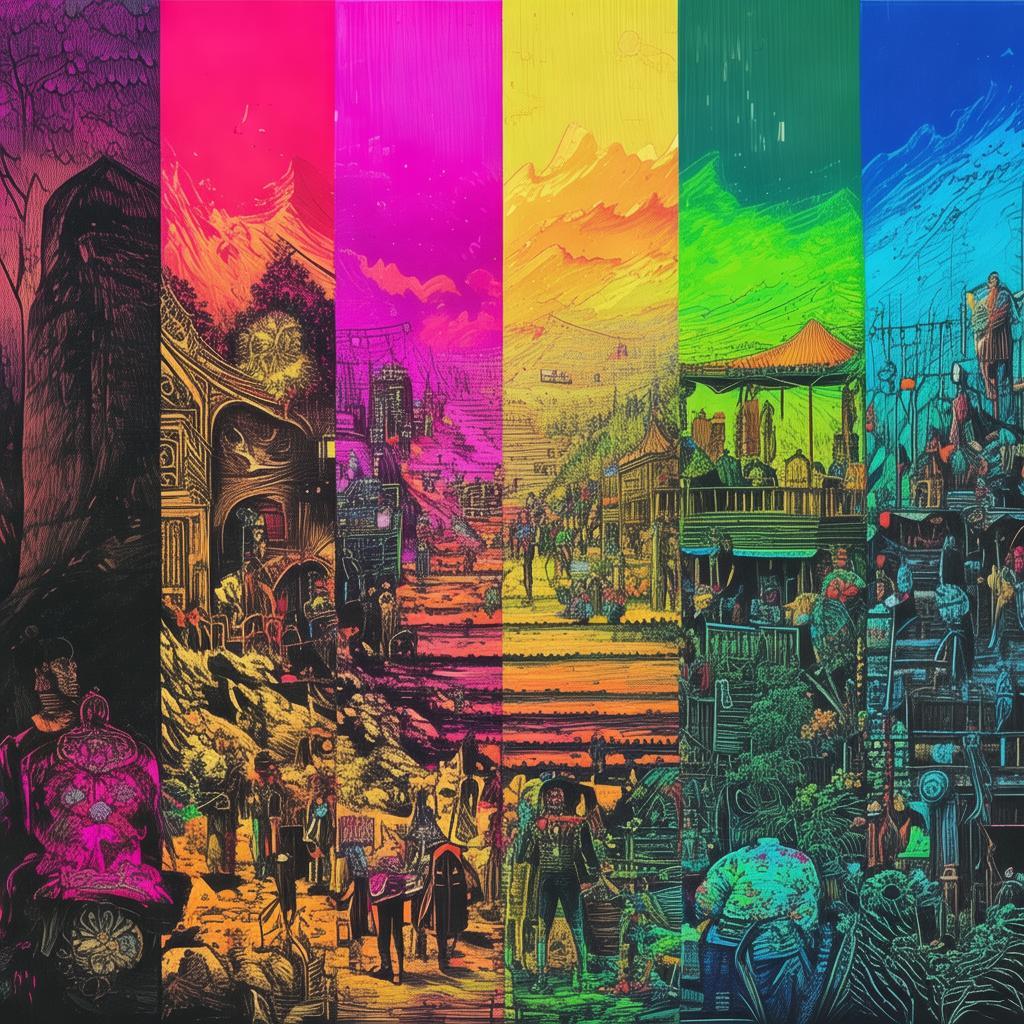Whispers of the Windmill
The sun dipped low behind the hills, casting long shadows across the rolling pastures. In the small town of Windmill Crossing, life moved at a pace that mirrored the slow turn of the windmill's blades. The windmill, a relic from the town's prosperous days, stood tall, its sails now faded and silent. Its owner, a shepherd named Thomas, was a man of quiet demeanor, known more for his gentle hands and the care with which he sheared his flock than for his words.
Thomas's family had lived in the town for generations, their roots as deep as the soil that fed their sheep. His father, a once-vibrant man, had built the windmill, and Thomas had always felt a connection to it, a symbol of the dreams and struggles of his ancestors.
One evening, as Thomas was shearing the last sheep, a letter arrived. It was from a distant relative he had never met, the executor of an estate that had belonged to his great-grandfather. The letter informed Thomas that he was the sole heir to the estate, which included the old windmill.
Curiosity piqued, Thomas traveled to the estate, a large, sprawling property that had been abandoned for years. The windmill, once a beacon of hope and industry, was overgrown with ivy and brambles. As he walked through the gates, the rustle of leaves seemed to whisper secrets of the past.
Inside the windmill, Thomas found old photographs, letters, and a journal that belonged to his great-grandfather. He learned that the windmill had been more than a source of power; it was a symbol of the family's woodworking legacy. His great-grandfather had built it with his own hands, and the wood that made up the structure was sourced from the very trees that surrounded the mill.
As Thomas explored, he discovered a hidden room behind a wall of old wooden crates. Inside, there was a chest filled with tools and a set of blueprints for a wooden toy. The journal revealed that his great-grandfather had built the toy for his own child, but tragedy had struck, and the toy had been left unfinished.
Thomas felt a surge of emotion. He had always been told that his family's legacy was the shearing of sheep, but now he understood that there was more to his heritage. He decided to fulfill his great-grandfather's dream and complete the toy.
In the weeks that followed, Thomas worked tirelessly. He spent nights in the windmill, the only sound the creak of the wooden floorboards under his feet and the occasional howl of a distant wolf. He became engrossed in the craftsmanship, finding a sense of purpose and peace he had never known.

One evening, as the sun began to set, Thomas finished the toy. It was beautiful, intricate, and filled with the spirit of his great-grandfather. With a sense of fulfillment, he placed it on a shelf in the windmill's main room.
It was then that the whispers began. They were faint at first, like the soft breeze that occasionally stirred the leaves. But as Thomas sat and reflected on his discovery, the whispers grew louder. They spoke of love, of loss, of a family that had been torn apart by a secret too dark to bear.
Thomas felt a chill run down his spine. He knew the whispers were not just the wind; they were the voices of his ancestors, reaching out across the years. He realized that the secret his family had kept was the key to understanding his own past and the future of the town.
The whispers led Thomas to a hidden room beneath the windmill. There, in a dusty trunk, was a letter. It was from his grandmother, a woman who had been shunned by the town after a scandal that had torn the family apart. The letter revealed that the secret was not one of shame, but of love and sacrifice. His grandmother had hidden the truth to protect her son, Thomas's father.
As Thomas read the letter, he understood the weight of the whispers. They were not just the voices of the past, but the echoes of a family's love. With this newfound knowledge, Thomas knew that he had to rebuild not just the toy, but the trust between his family and the town.
The following days were a whirlwind of activity. Thomas shared his discovery with the town, and the people of Windmill Crossing responded with an outpouring of support. The windmill was restored, and Thomas's woodworking skills were put to use, creating furniture and toys for the town.
The toy that Thomas had completed became a symbol of healing and hope. It stood in the windmill's main room, a testament to the power of family, love, and the enduring strength of the human spirit.
In the end, Thomas found peace in the windmill, a place where the past and the present intersected. He learned that sometimes, the truest form of inheritance is not material, but the knowledge of who we are and where we come from.
As the days turned into weeks, Thomas's story spread through the town like wildfire. The windmill, once a forgotten relic, became a place of community and reflection. And Thomas, the shepherd who had once been content to live in the shadow of his family's legacy, found his place in the light, ready to carry on the traditions that had been passed down through generations.
✨ Original Statement ✨
All articles published on this website (including but not limited to text, images, videos, and other content) are original or authorized for reposting and are protected by relevant laws. Without the explicit written permission of this website, no individual or organization may copy, modify, repost, or use the content for commercial purposes.
If you need to quote or cooperate, please contact this site for authorization. We reserve the right to pursue legal responsibility for any unauthorized use.
Hereby declared.









